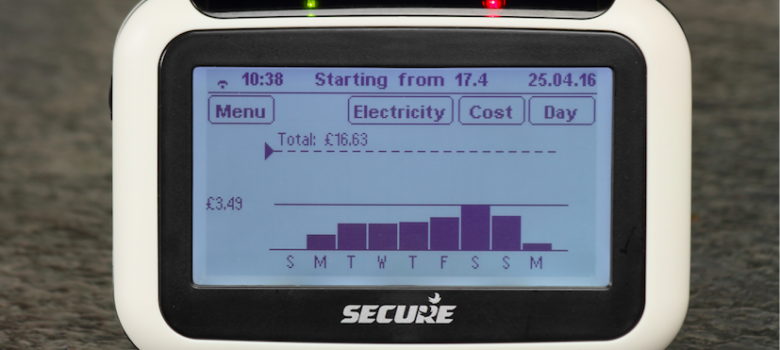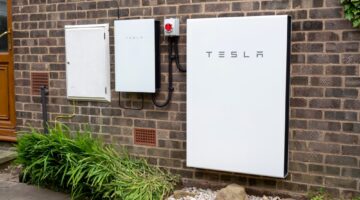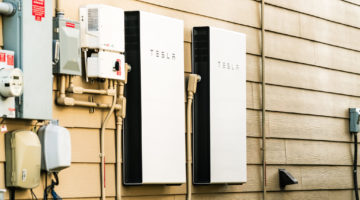
We’ve been wondering for some time now if energy companies would start offering time of use tariffs in a bid to soften the predicted energy shortage in the UK. In fact, we first wrote about the idea back in 2012.
A new tariff offers discounted off-peak electricity, aiming to encourage people to run their most power-hungry appliances at night, when demand is at its lowest; thus putting less strain on the National Grid. This could hopefully save us having to import even more gas from Norway, after decommissioning coal power plants has left the UK with a dip in electricity production. Although reducing air pollution by shutting these plants is good news for the planet, there has been nothing built to replace them with, as the Government continue to ignore renewables…
The answer could be on its way, thanks to supplier Green Energy UK (which notably gets all its energy from renewable sources in the UK) introducing the first ‘time of use’ energy tariff.
Time of Use tariffs
The new tariff means lower bills for customers and less pressure for UK infrastructure. By running appliances such as dishwashers and washing machines at night, power surges can be avoided, hopefully ensuring a constant supply of energy. The tariff requires a smart meter, which are currently being installed free of charge by energy providers all over the country. These give you real-time information on much energy you are using and allow you to track costs. The national roll out of smart meters is already underway and the government aims to install 53million by 2020. Hopefully, the more people who have them installed, the more energy providers will realise demand is there and introduce their own time of use tariffs.
How are Time of Use tariffs different from Economy 7?
Existing Economy 10 and Economy 7 tariffs are both time-based electricity tariffs, but these need special meters and are only good value with storage heaters (which are often inefficient and problematic, especially as some don’t know how to use them so charge them in the day when rates are most expensive anyway). Besides, Economy 7 probably won’t be around for much longer. Coal and nuclear power plants (which can’t switch off at night, hence the introduction of cheap night rates) are being decommissioned. This means there will soon be no reason to continue offering the tariff.
What savings can people expect to make?
Pretty big ones! Green Energy UK’s plan offers electricity at 20p cheaper per unit overnight, so if you’re smart about when you run your appliances, you could see a big reduction in your bills.
The prices of their ‘Tide’ tariff are as follows:
| WEEKDAY | |
| 23:00 – 06:00 | 4.99p/kWh |
| 06:00 – 16:00 | 11.99p/kWh |
| 16:00 – 19:00 | 24.99p/kWh |
| 19:00 – 23:00 | 11.99p/kWh |
| WEEKEND | |
| 23:00 – 06:00 | 4.99p/kWh |
| 06:00 – 23:00 | 11.99p/kWh |
The cheapest rate is 11pm-6pm every night, when electricity is just 4.99p per unit.
A word on battery storage
These tariffs could lead to a bigger take-up of home battery storage technology, as it means customers can maximise savings from time of use tariffs. With a battery storage system (which there are quite a few of on the market these days), people can charge batteries during the hours of cheaper electricity and then use this electricity whenever they need it. The current average price for energy is around 12.5p per unit, so buying most of a household’s electricity at the price of 4.99p instead could save people hundreds of pounds over the course of a year.
So, this is pretty big news and we think good news too! It only requires easy behavioural changes for consumers and could make a big difference in terms of energy demand.
Are you moving to a time of use tariff? Let us know how you get on in the comments below!
Think we missed something? Do you have a different opinion?
Comment below to get your voice heard…












You have a raised a very interesting point here. I expect batteries to really find their place during 2017. I think they will become more and more mainstream because they will become more affordable but also I think people are recognising the plight that the UK is in with regards to black outs that could well become a reality in the coming days / months / years.
Hi KevinP, thanks for your comment. I guess the hope is that the industry settles on a particular technology. Many of the battery energy storage companies are looking at relatively low capacity batteries (Lithium) which are designed to help reduce the need to pull electricity from the grid, but also help manage the export of electricity produced from solar panels (i.e. don’t export it back to the grid, instead use it in the house), but time of use tariffs do open up the possibility of getting much larger home battery systems installed to take advantage of drawing electricity when it is cheap. One of the Tesla models for example is 14kWh, which is a pretty decent size and should power a home for most of an evening, but conversely the Powervault (a UK based company) produces a max size if 6kWh.
As far as I can see, Green energy are only offering this tarif if you have both gas and electricity from them.
For those of us who do not have a gas supply, we are unable to take advantage of this offer
Hi Paul – it appears so, hopefully this will change in the near future as more people get smart meters installed and the energy companies roll out more time of use tariffs.
Hi Paul, i ask again what is the current gas tariff?
Hae i missed it? What price is gas